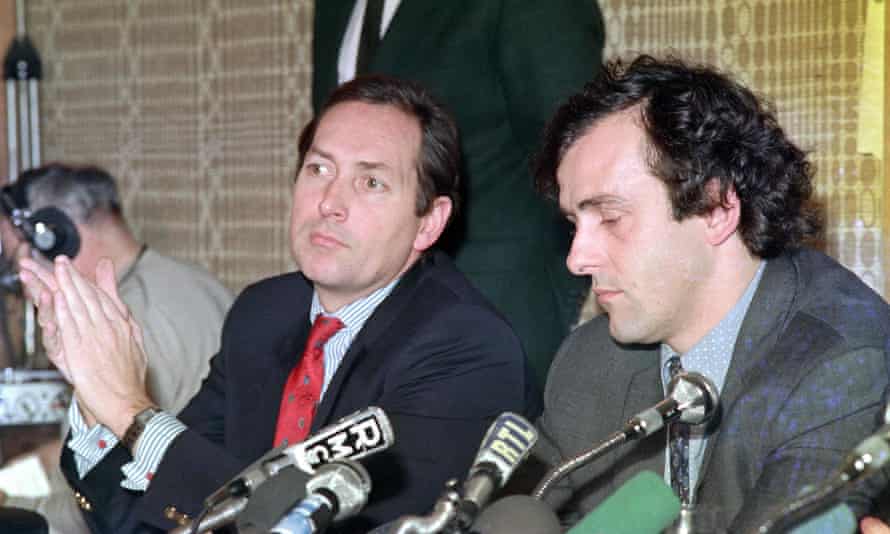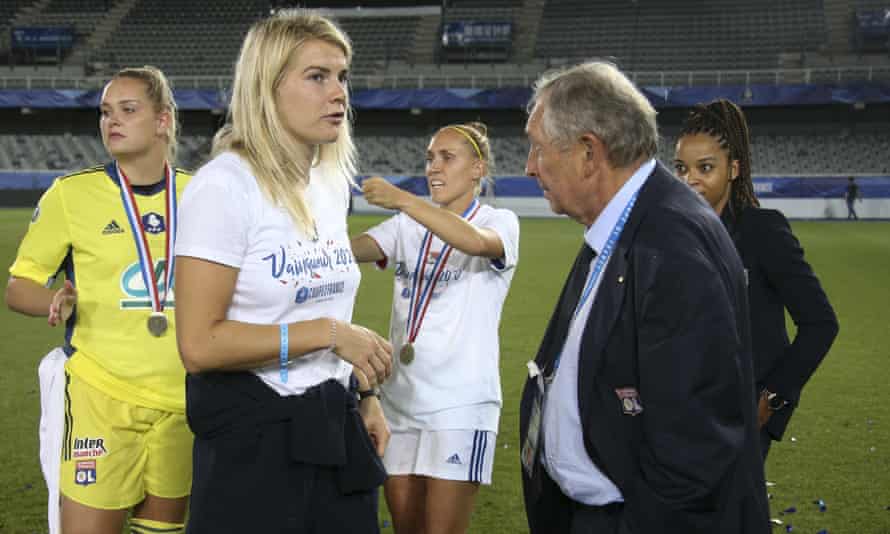[ad_1]
“I was at the Premier League Hall of Fame induction with Klopp and Guardiola,” Gérard Houllier remembered in an interview with Eurosport this year. “I am at the table and they sit down. One on the right and one on the left. They spent the evening asking me questions … I still don’t understand why.”
An innovative, creative coach and a trophy-winning manager across his career, Houllier remained humble and unassuming throughout his life in football. Despite such broad success, Houllier’s caring, guiding influence on those he met and worked with may have been his greatest achievement.
On returning to France after a spell as a teacher at Alsop comprehensive, a school near Anfield, Houllier moved into coaching after an amateur playing career, managing lower league sides Le Touquet and US Nœux-les-Mines in the 70s. Houllier propelled Nœux-les-Mines to the second division and narrowly missed out on promotion to the top tier via a play-off defeat by Toulouse in 1981.
“It was not a big city but we lived extraordinary moments,” Houllier recalled. “I still have all the happiness shared with the supporters deep inside me.”

Houllier was named Division Two coach of the year by France Football and joined First Division Lens in 1982. An impressive fourth place in his first season brought a return to the Uefa Cup. He “completely revolutionised our athletic preparation,” said the Lens and PSG striker Daniel Xuereb.
In 1985, at 38 years of age, Houllier joined PSG, a club barely 15 years old at the time, where his first season was again his best. With the France goalkeeper Joël Bats and one corner of the famous Les Bleus midfield, Luis Fernández and Dominique Rocheteau, PSG went 27 games unbeaten and narrowly edged Nantes for the title – the club’s first.
After a 3-1 final-day win over Bastia, an emotional Houllier said: “It’s the greatest reward of my career. To put in such a performance, you have to have quality men.” Although Houllier was sacked during the 1987-88 campaign, the title was crucial to PSG’s development and helped stoke the burgeoning rivalry with a resurgent Marseille.
Rocheteau remembers a “‘coach-buddy’, who always had a hyper-attentive ear and put a great atmosphere in the group. He was a great gentleman, who had ideas and a vision … He was also a great orator.”
Houllier’s only failure in France came during a short spell as the national manager. Working as assistant to Michel Platini during the group stage exit at Euro 92, Houllier was promoted after Platini’s departure. However, he, too, would leave by the end of 1993, having failed to qualify for USA 94 after the notorious qualifying defeat to Bulgaria at the Parc des Princes.
Needing a draw, the winger David Ginola lost possession from a free-kick deep in injury time, allowing Bulgaria to counterattack and Emil Kostadinov to score the winner and put France out. “These 15 fatal seconds against Bulgaria changed everything,” Houllier said upon his resignation eight days later. “Fifteen seconds out of 900 minutes of qualifying matches.”
Houllier made Ginola the scapegoat. “We got stabbed in the back and at the worst possible time,” he said and later referred to Ginola’s wastefulness as “a crime against the team”.
An ensuing feud rumbled on for decades. In 2012, a French court dismissed Ginola’s defamation lawsuit against remarks in Houllier’s book Coaches’ Secrets. Houllier told RMC in 2015: “Before this game, he said to the press he had to play in place of Eric Cantona and Jean-Pierre Papin.” Only for Ginola to call the radio station with an angry retort: “These are lies.”
Houllier played a major role in developing the generation who would help dominate international football around the turn of the century. Dropping down to manage France U18s and U20s in the mid-90s, Houllier guided a side featuring Thierry Henry and David Trezeguet to the U18 European Championship title in 1996. Henry spoke of the camaraderie Houllier’s squad enjoyed. “We were happy to be together,” he said.
After three domestic cup triumphs, a Uefa Cup win and an honorary OBE at Liverpool, successes Houllier once joked were “not bad for a former schoolteacher,” he returned to France as Lyon’s manager in 2005 and comfortably guided them to two of their seven consecutive league titles in 2006 and 2007.
However, despite double-digit point margins in both campaigns, much like present-day PSG coaches, it was in the Champions League where Houllier would be truly judged as the Lyon president, Jean-Michel Aulas, chased European recognition. After two late Milan goals broke Lyon hearts in the 2005-06 quarter-finals, they underwhelmed the following year and were squeezed out at the last-16 stage by Roma. Despite his domestic success, Houllier had not done enough to satisfy Aulas and was soon gone.
In 2016, however, Houllier rejoined Lyon as an adviser to Aulas. To protect his health, the proposed role of general manager was shelved but he still carried much of its influence and authority. “He embodies OL’s best moments at the top level,” Aulas said at the time. “It is essential he comes and gives us a hand.”
The role of adviser became Houllier’s latest specialty, spending four years directing the youth development of Red Bull’s footballing projects, as well as momentarily operating as sporting director of the New York franchise.
Houllier was key to the appointment of Bruno Genesio as OL coach in 2015, who outlined to L’Équipe the importance of Houllier to his career: “He helped me so much, advised me so much. If I was able to hold out until the end of my contract at OL, it is thanks to him.”
Rémi Garde spoke of similar influence and encouragement: “Gérard gave me a lot of confidence and this desire to embrace this profession.” “He was someone sparkling, charming, in love with football,” said the Lyon women’s coach, Jean-Luc Vasseur, while the Lyon defender Selma Bacha told L’Équipe she would “keep [his] advice and [his] kindness forever in my heart”.

“Lyon have had some very good coaches,” said the former OL coach Robert Duverne. “Some very good technicians too but he was the only real manager. With him, we could have won the Champions League. I even have more memories of the man than the coach. He said to me once, given our relationship: ‘The pressure of football, even if we have disagreements, will never be stronger than our friendship.’”
Lyon did not win the Champions League under Houllier but his warm, guiding influence on so many he met proved to be a far greater triumph for an intelligent coach, a heartfelt educator and a shining father figure. Houllier’s biggest passion was spotting and supporting talent at every level: pros, youth, sporting directors, and most recently in the women’s game for Lyon and OL Reign in the US.
In Houllier’s office in Paris, he kept a picture of himself and Arsène Wenger, which he treasured so much and regularly, almost giddily, told visitors about. The scene is emblematic of his humility and French football has lost one of the two individuals who have best represented it on every kind of footballing stage in the modern era.
[ad_2]
Source link